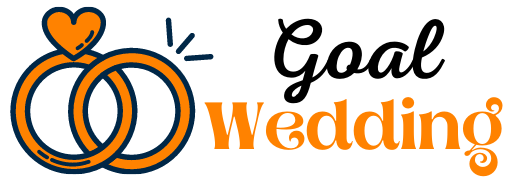The Impact of Jameliz Leaks: Unveiling the Power of Whistleblowing
-
Table of Contents
- The Impact of Jameliz Leaks: Unveiling the Power of Whistleblowing
- The Rise of Jameliz Leaks
- The Impact of Jameliz Leaks
- The Ethical Considerations
- The Benefits of Whistleblowing
- Q&A
- 1. Are jameliz leaks legal?
- 2. How can organizations protect themselves from jameliz leaks?
- 3. What are the potential consequences for whistleblowers?
- 4. How can society support whistleblowers?
Whistleblowing has long been recognized as a powerful tool for exposing corruption, unethical practices, and wrongdoing within organizations. In recent years, the rise of online platforms and social media has given whistleblowers a new platform to share their revelations with the world. One such example is the phenomenon of “jameliz leaks,” where anonymous individuals leak sensitive information to the public. In this article, we will explore the impact of jameliz leaks, the ethical considerations surrounding them, and the potential benefits they bring to society.
The Rise of Jameliz Leaks
Jameliz leaks have gained significant attention in recent years, with numerous high-profile cases capturing the public’s imagination. The term “jameliz leaks” refers to the act of anonymously leaking sensitive information, often in the form of documents, emails, or recordings, to the public. These leaks are typically shared through online platforms, such as social media or dedicated websites, and can have far-reaching consequences for the individuals and organizations involved.
One of the most well-known examples of jameliz leaks is the release of classified documents by Edward Snowden in 2013. Snowden, a former National Security Agency (NSA) contractor, leaked a trove of documents that revealed the extent of government surveillance programs. The information he shared sparked a global debate on privacy, security, and the balance between individual rights and national security.
The Impact of Jameliz Leaks
The impact of jameliz leaks can be profound, both at an individual and societal level. These leaks have the potential to expose corruption, hold powerful individuals and organizations accountable, and bring about significant social change. Here are some key ways in which jameliz leaks have made an impact:
- Exposing Corruption: Jameliz leaks have been instrumental in exposing corruption and unethical practices within both public and private sectors. By revealing hidden information, these leaks provide evidence that can be used to hold individuals and organizations accountable for their actions.
- Informing the Public: Jameliz leaks often provide the public with information that would otherwise remain hidden. This newfound transparency allows individuals to make more informed decisions and hold those in power to a higher standard of accountability.
- Triggering Legal Action: In some cases, jameliz leaks have led to legal action against individuals or organizations involved in wrongdoing. The leaked information can serve as crucial evidence in court cases, leading to justice being served.
- Shaping Public Opinion: Jameliz leaks can have a significant impact on public opinion, shaping the way individuals perceive certain issues or individuals. These leaks can influence public discourse, leading to increased awareness and potential policy changes.
The Ethical Considerations
While jameliz leaks can have positive outcomes, there are also ethical considerations that need to be taken into account. Whistleblowing, in general, raises questions about the balance between individual rights, national security, and the potential harm caused by the release of sensitive information. Here are some ethical considerations surrounding jameliz leaks:
- Anonymity: The anonymous nature of jameliz leaks can protect whistleblowers from retaliation, but it also raises questions about accountability and the potential for false or misleading information to be shared.
- Public Interest: Whistleblowers often argue that their actions are driven by a desire to serve the public interest. However, determining what constitutes the public interest can be subjective and open to interpretation.
- Collateral Damage: The release of sensitive information through jameliz leaks can have unintended consequences, such as endangering individuals’ lives or compromising national security. Whistleblowers must carefully consider the potential harm caused by their actions.
The Benefits of Whistleblowing
Despite the ethical considerations, whistleblowing, including jameliz leaks, brings several benefits to society. These benefits outweigh the potential risks and contribute to a more transparent and accountable world. Here are some key benefits of whistleblowing:
- Accountability: Whistleblowing holds individuals and organizations accountable for their actions, ensuring that they are held to the same standards as the rest of society.
- Preventing Wrongdoing: Whistleblowing can act as a deterrent, preventing individuals and organizations from engaging in unethical or illegal activities for fear of being exposed.
- Systemic Change: Whistleblowing has the potential to bring about systemic change by exposing flaws in existing systems and practices. This can lead to reforms and improvements that benefit society as a whole.
- Protecting the Vulnerable: Whistleblowing can protect the rights and well-being of vulnerable individuals or groups who may otherwise be silenced or ignored.
Q&A
1. Are jameliz leaks legal?
The legality of jameliz leaks depends on the jurisdiction and the specific circumstances surrounding the leak. In some cases, leaking classified information may be considered illegal, while in others, it may be protected under whistleblower laws. It is essential to consult legal experts to understand the specific legal implications of jameliz leaks in a particular context.
2. How can organizations protect themselves from jameliz leaks?
Organizations can take several steps to protect themselves from jameliz leaks:
- Implement robust internal controls and ethical guidelines to prevent unethical behavior.
- Create a culture of transparency and open communication, where employees feel comfortable reporting concerns internally.
- Establish secure systems for storing and sharing sensitive information, limiting access to authorized individuals.
- Regularly review and update security protocols to stay ahead of potential vulnerabilities.
3. What are the potential consequences for whistleblowers?
Whistleblowers can face various consequences for their actions, including:
- Retaliation from their employers, such as termination, demotion, or harassment.
- Legal action, depending on the nature of the leaked information and the applicable laws.
- Social stigma or public backlash, particularly if the leaked information is controversial or sensitive.
4. How can society support whistleblowers?
Society can support whistleblowers by:
- Advocating for stronger whistleblower protection laws to ensure their rights are safeguarded.
- Creating support networks and resources for whistleblowers, including legal assistance and counseling services.
- Recognizing and celebrating the contributions





